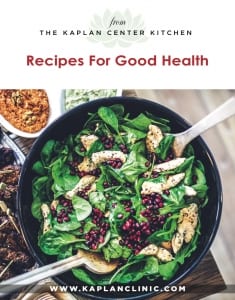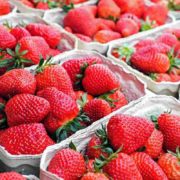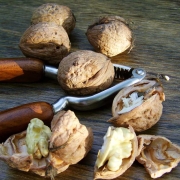Does Raw Kale Interfere with Calcium Absorption?
Calcium is the most abundant mineral found in the body. We need it to not only make sure our bones stay strong and healthy as we age, but to also maintain the proper functioning of the heart, muscles, and nerves. Green smoothies and protein shakes containing calcium-rich leafy greens have become a popular and easy way to incorporate this essential nutrient into our diets. However, in certain cases it comes with a caveat. Some leafy greens like kale, chard, beet greens and spinach contain oxalic acid, which is a type of antinutrient that binds with calcium and reduces its absorption in the intestines. In addition to the greens listed above, oxalic acid is also found in some legumes and grains.
Does this mean you should not add kale or other greens that contain oxalic acid to your smoothies? Not necessarily. In their raw form, these greens should not be considered a good source of calcium. However, by cooking or steaming these vegetables you can significantly reduce the amount of oxalic acid present, which will help with calcium absorption (make sure to drain your greens thoroughly as the oxalates go into the water).
One suggestion would be to precook your leafy greens and store them in the freezer (in individual portions) for quick access. When you’re ready to make your smoothie, just grab a portion and throw it in! Cooked and drained, kale is also a great addition to soups, stews, and even pizza! Other methods to reduce their antinutrient content include sprouting and fermenting.
Another suggestion would be to eat foods known to contain oxalic acid 2 hours apart from dietary calcium sources. Doing this will allow enough time for the body to absorb it.
Other foods that will boost the calcium content in your smoothie are unsweetened Greek yogurt (which also contains a good amount of protein) and flax seeds.
Making sure calcium-rich foods are a part of your diet can help avoid a deficiency. If you’re unable to get enough calcium through your diet, supplementation may be recommended. Calcium deficiency can lead to symptoms such as:
- Osteoporosis
- Osteopenia
- Mood swings
- Difficulty sleeping
- Fatigue
- Memory problems/confusion
If you are experiencing symptoms or need general nutritional guidance, we can help. Please give us a call at 703-532-4892. We’re here to help you get to the root cause of your symptoms so healing can begin.
Additional resources: Foods High in Oxalates
References:
Gupta RK, Gangoliya SS, Singh NK. Reduction of phytic acid and enhancement of bioavailable micronutrients in food grains. J Food Sci Technol. 2015 Feb;52(2):676-84. doi: 10.1007/s13197-013-0978-y. Epub 2013 Apr 24. PMID: 25694676; PMCID: PMC4325021.
M. López-Moreno, M. Garcés-Rimón, M. Miguel, Antinutrients: Lectins, goitrogens, phytates and oxalates, friends or foe? Journal of Functional Foods, Volume 89, 2022, 104938, ISSN 1756-4646, https://doi.org/10.1016/j.jff.2022.104938.
WEAVER, C.M., HEANEY, R.P., NICKEL, K.P. and PACKARD, P.I. (1997), Calcium Bioavailability from High Oxalate Vegetables: Chinese Vegetables, Sweet Potatoes and Rhubarb. Journal of Food Science, 62: 524-525. https://doi.org/10.1111/j.1365-2621.1997.tb04421.x
This article was updated in January, 2024.
RECIPE eBOOK:
Recipes for Good Health










Leave a Reply
Want to join the discussion?Feel free to contribute!